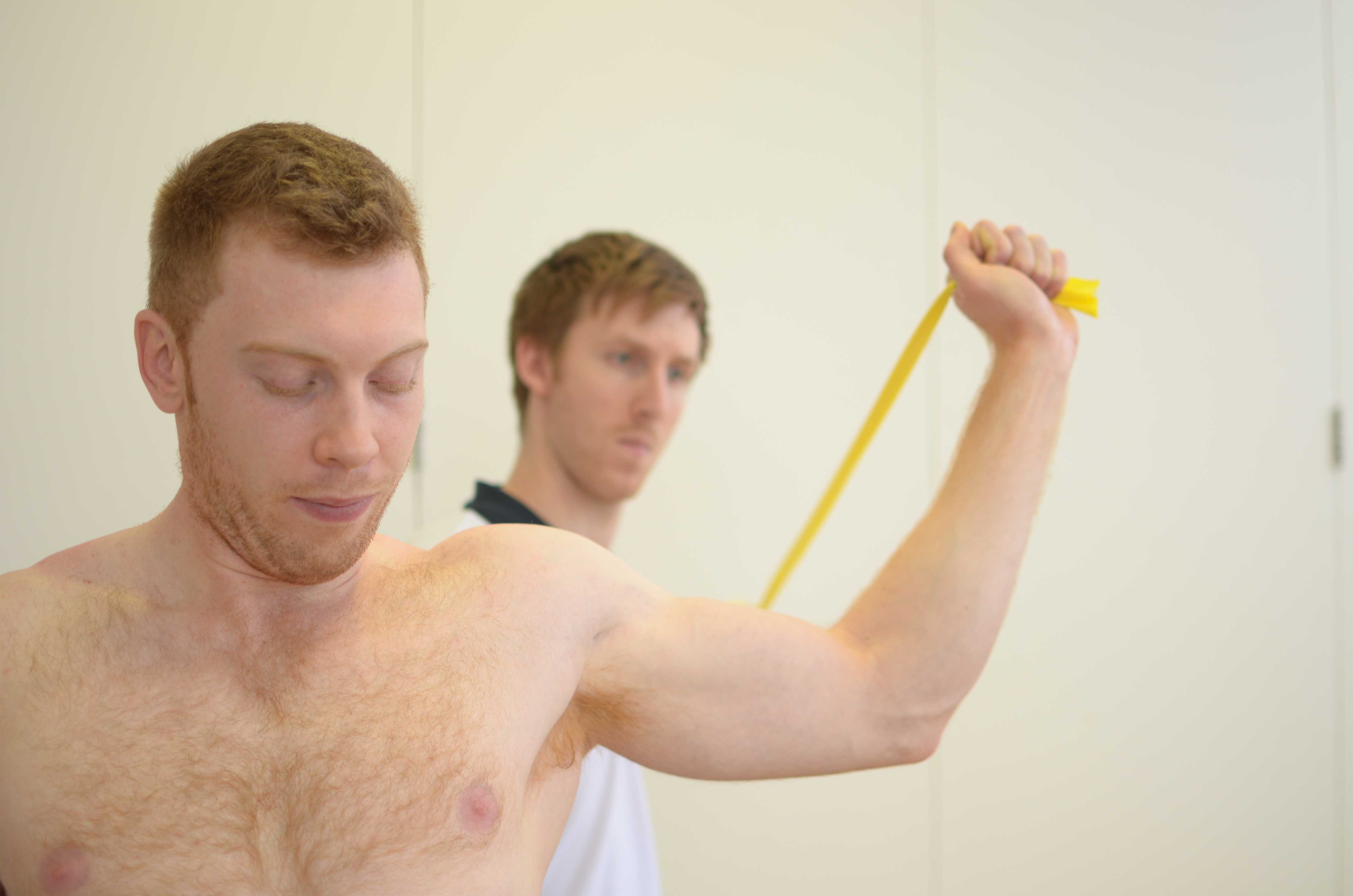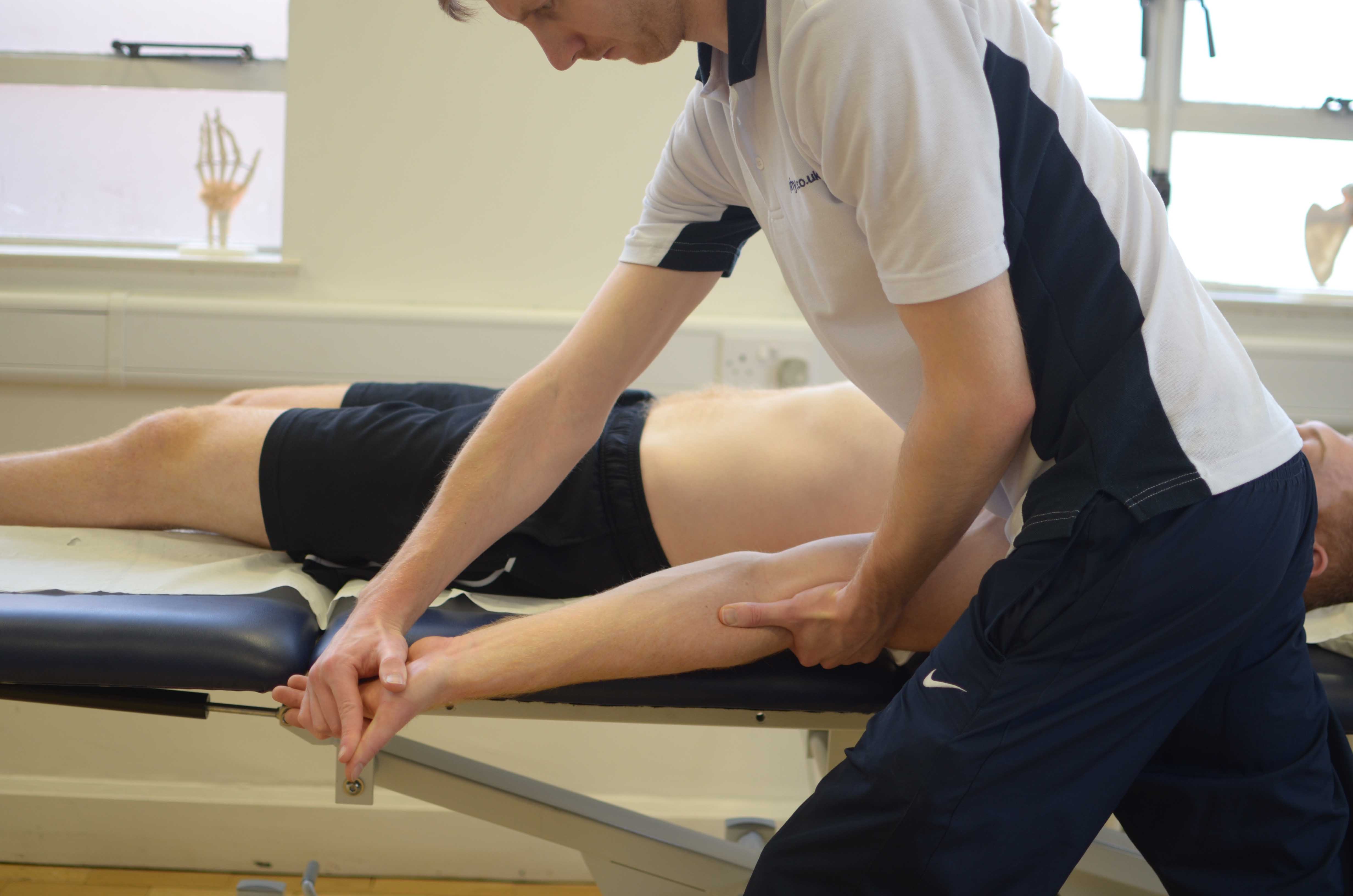What is phantom pain?
Phantom pain is the apparent nerve pain that comes from an area of the body that is no longer there due to trauma or surgical amputation. It is mostly experienced after the amputation of part of a limb such as an arm or a leg but can also be experienced when other parts of the body have been removed.
 Above: Muscle tone and proprioception exercises to reduce pain and normalise sensation
Above: Muscle tone and proprioception exercises to reduce pain and normalise sensationWhat causes phantom pain?
The exact cause of phantom pain in unclear however there are theories related to a disruption of messages travelling from the nervous system to the brain. It is thought to occur because the nerves in the body are continuing to tell the brain that the amputated part is still there. Even though the limb is not there anymore, the pathways of nerves remain and as a result there could be an increase in false pain or sensation messages to the brain which aren’t blocked because the limb is gone.
What are the symptoms of phantom pain?
Phantom pain is very real and affects people who have had an amputation of some sort but it may not affect everyone who has had an amputation. Sufferers may experience continued pain or sensation where the part was previously. Phantom experience is when amputees don’t suffer pain but they experience certain sensations like itching or temperature. Stump pain is pain perceived specifically at the stump. Phantom pain may feel like cramping, burning, stabbing or shooting pain. A number of things may aggravate stump or phantom pain e.g.
- Fatigue
- Temperature or weather changes
- Excess pressure on amputated area
- Infection
- Stress
- Ill-fitting artificial/ prosthetic limb
 Above: Soft tissue massage and joint mobilisations to normalise sensation
Above: Soft tissue massage and joint mobilisations to normalise sensationPhysiotherapy for phantom pain
The main aim of physiotherapy for phantom pain is to assess the problems you are experiencing and reduce the pain, sensation and discomfort in the affected area. Physio.co.uk has specialist physiotherapists who will provide you with a comprehensive assessment that aims to determine the exact cause of the problem. Your physiotherapist will then develop a treatment plan that will include activities to minimise or eliminate your pain. Other goals of your physiotherapy include education, to reduce stress and improve sleep patterns. Activities include;
- Assessment of amputation, stump and prosthesis
- Pain modalities
- Stress management and relaxation techniques
- Appropriate cardiovascular and strengthening exercises to improve overall health and fitness levels
- Education on how to make lifestyle changes – advice on diet, managing sleep and managing rest
- Functional activities to help problems associated with daily living
- Appropriate referral if necessary
- Nerve stimulation – Electrical stimulation to interrupt or mask pain signals to the brain.
- Mirror Therapy – Aims to make it look like the amputated limb still exists. The person moves the unaffected limb and watches the reflection whilst imagining that they are watching missing limb move. Helps reduce phantom pain.
- Acupuncture – Effective for chronic pain and phantom pain by stimulating the nervous system to release the body’s natural pain-relieving endorphins.
Summary
Phantom pain is pain that feels like it's coming from a body part that's no longer there. Phantom pain is commonly experienced after part of the body like a limb has been amputated. Phantom pain is thought to occur because the nerve pathways to the amputated part still remain meaning that nerves in the body are continuing to tell the brain that the amputated part is still there. The remaining nerve pathways may cause an increase false pain or sensation messages being sent to the brain. Although phantom pain is difficult to treat, there are a variety of treatments available including certain medications and surgery options. Physiotherapy has shown to be a very effective method to treat symptoms associated with phantom pain. Specialist physiotherapists at Physio.co.uk aim to minimise the pain and discomfort in the affected area, reduce stress, improve sleep patterns, increase general fitness and wellbeing and also maintain or improve mobility and function as much as possible. Call Physio.co.uk now on 0330 088 7800 for more information or to book an appointment please contact us. You can also book online today!

 0330 088 7800
0330 088 7800





































